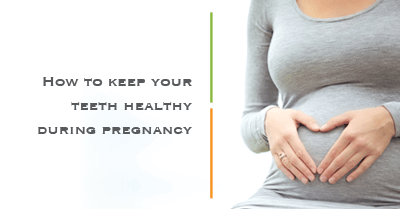Pregnancy is a time of significant changes in the body, and while you’re likely focusing on overall health, it’s important not to overlook your dental health. Understanding how pregnancy affects your teeth and gums and taking the necessary steps to maintain good dental hygiene can help ensure a healthy pregnancy and avoid complications.
Common Dental Issues During Pregnancy
During pregnancy, hormonal changes and shifts in the body’s immune system can lead to specific dental issues. Some of the most common problems that can arise include:
- Pregnancy Gingivitis: Many pregnant women experience gingivitis, a mild form of gum disease. This occurs due to increased hormone levels, which cause the gums to become more sensitive to plaque. Symptoms include swollen, red, or bleeding gums, especially when brushing or flossing.
- Increased Risk of Tooth Decay: Pregnant women may be more prone to cavities due to changes in diet (such as increased cravings for sugary foods), morning sickness, and a more acidic environment in the mouth. In addition, some women may neglect their oral hygiene routines due to fatigue or nausea, contributing to plaque buildup.
- Pregnancy Tumors: These benign growths can appear on the gums during pregnancy, usually in the second trimester. They are non-cancerous and typically go away after childbirth, but they can cause discomfort and bleeding when brushing.
- Enamel Erosion: Morning sickness and frequent vomiting can expose your teeth to stomach acids, leading to enamel erosion. This can make your teeth more vulnerable to decay and sensitivity.
Periodontitis and Pregnancy
While pregnancy gingivitis is relatively common, it’s important to monitor your gum health closely to prevent it from progressing to periodontitis, a more severe form of gum disease. Periodontitis can cause serious complications for both the mother and the baby if left untreated.
Periodontitis is an infection of the gums and the bone that supports your teeth. If not addressed, it can lead to tooth loss. But during pregnancy, untreated periodontitis can increase the risk of more significant health issues, including:
- Preterm Birth: Some studies suggest that pregnant women with severe gum disease may be at an increased risk of delivering prematurely.
- Low Birth Weight: Babies born to mothers with periodontitis may have a higher risk of being underweight, which can lead to further health complications.
- Preeclampsia: Gum disease has also been linked to preeclampsia, a condition characterized by high blood pressure during pregnancy, which can pose serious risks to both mother and baby.
Given the potential complications associated with periodontitis, it’s essential to maintain regular dental check-ups and practice good oral hygiene throughout your pregnancy.
How to Prevent Dental Problems During Pregnancy
Maintaining good dental health during pregnancy is crucial for both your wellbeing and your baby’s health. Here are some steps you can take to prevent dental issues while pregnant:
- Brush and Floss Regularly: Brush your teeth at least twice a day using fluoride toothpaste and floss daily to remove plaque from between your teeth. This will help prevent both gum disease and tooth decay.
- Stay Hydrated and Rinse After Morning Sickness: If you experience morning sickness, rinse your mouth with water or a mixture of water and baking soda to neutralize the acid and protect your enamel from erosion. Drinking plenty of water throughout the day also helps wash away food particles and bacteria.
- Eat a Balanced Diet: A diet rich in calcium, vitamins, and minerals supports both your overall health and your dental health. Avoid sugary snacks, which can contribute to tooth decay, and opt for nutritious foods that are good for your teeth, such as dairy products, leafy greens, and fruits.
- Visit Your Dentist Regularly: Don’t skip your dental appointments while pregnant. Regular check-ups and cleanings are essential for preventing and managing any dental issues that may arise. Make sure to inform your dentist that you’re pregnant, as they may adjust certain treatments to ensure your safety.
- Consider Dental Work in the Second Trimester: If you need non-urgent dental work, the second trimester is typically the safest time to schedule it. During this period, most of the baby’s major development is complete, and the discomfort of early pregnancy has often passed.
By following these preventive measures and staying proactive about your dental health, you can reduce your risk of developing dental problems during pregnancy and help ensure a healthy pregnancy for you and your baby.




